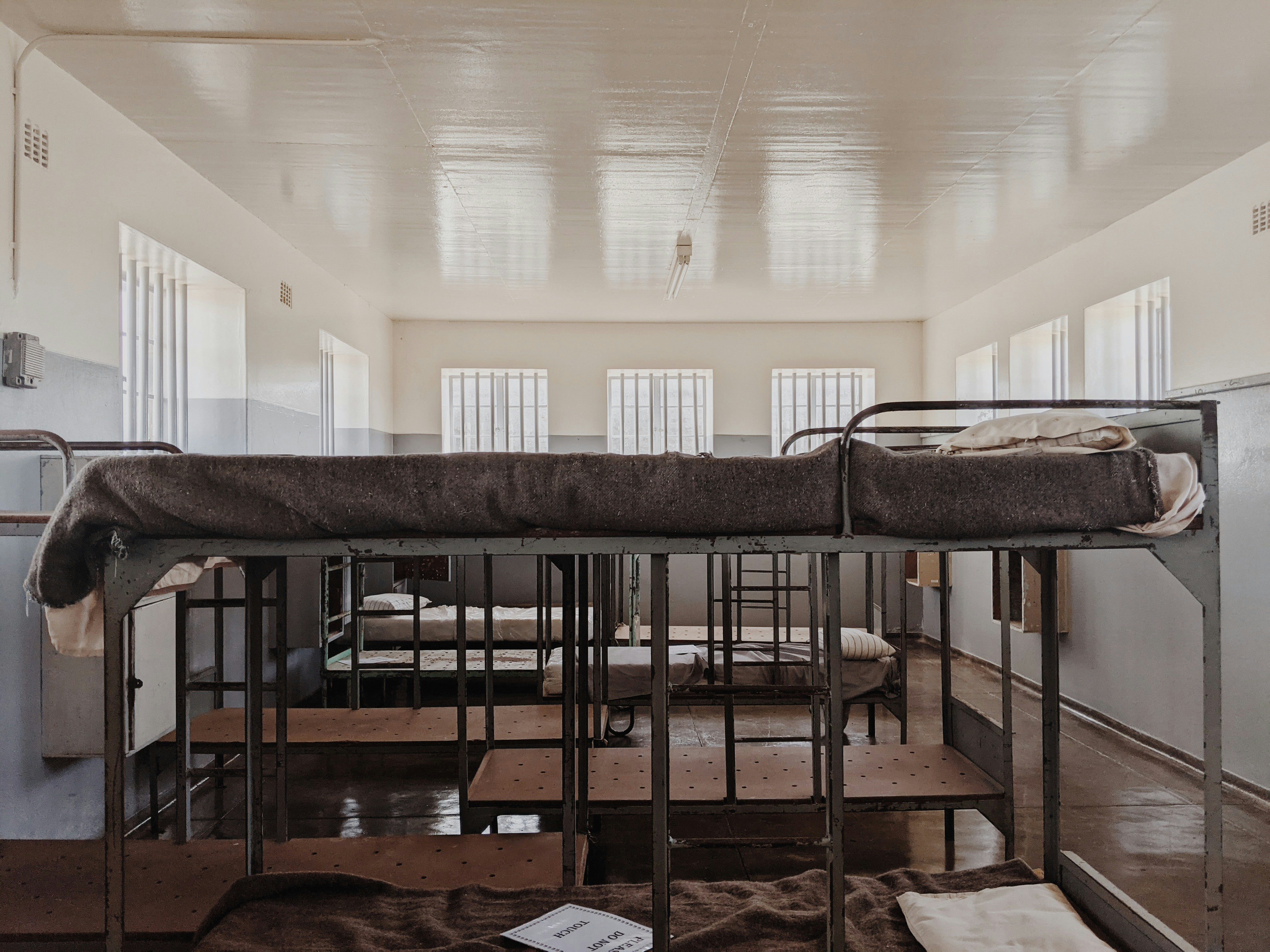Report
Pathways for reducing prison overcrowding in Lebanon
An evidence-based framework for addressing the root causes of prison overcrowding in Lebanon.

Overcrowding in detention centres in Lebanon is arguably the most pressing human rights issue in the country. Overcrowding effects all places of detention: police station detention cells, courtroom holding cells, and prisons. The occupancy rate in prisons is on average between 200% and 250% of capacity; in some police detention cells it has reached 1000%.
Prison overcrowding in Lebanon is driven by a number of factors. The primary driver of overcrowding is the disproportionate use of arrest and pretrial detention, leading to excessive demands being placed on the criminal justice system as a whole, from detention space to judges. Pre-trial detainees are estimated to account for 81% of the total detention population across Lebanon. This is due to an over-reliance on arrest on the basis of suspicion and prevention as well as the inability and unwillingness to employ alternatives to pre-trial detention.
A number of additional drivers of overcrowding have been identified: The under-utilisation of alternatives to imprisonment at the sentencing stage; the inability for detainees to reliably access legal counsel; inefficiencies in the criminal justice system coupled with a lack of modern systems for managing detainee records, leading to unorganised court processes and delays in court proceedings; ineffective or non-existent accountability mechanisms; unsatisfactory capabilities amongst the police and judiciary to properly manage detainees compliant with human-rights standards; and poor management, both in terms of capacity and quality, of current detention facilities.
Overcrowding has a wide range of harmful effects. Foremost, detainees’ well-being is continuously compromised, while Lebanon remains in daily contravention of its international human rights obligations. Inordinate demands are also placed on criminal justice actors themselves; the ISF, for example, has to dedicate a disproportionate amount of resources to the transportation of detainees, which has a deleterious effect on the organisation’s current attempts to introduce a more visible and proactive style of policing. The safety of both detainees and detention personnel is eventually put at risk by the potential for outright violence, exemplified by the 2011 Roumieh Prison riots.
All stakeholders, including the Ministry of Interior, the Ministry of Justice, judges and prosecutors, civil society organisations, and the donor community are therefore in agreement that overcrowding requires immediate action in Lebanon. The ISF, as part of their recently launched Strategic Plan, specified the improvement of detention conditions in line with international standards as one of their stated objectives for the coming five years.
Yet previous attempts to address the issue have fallen short. Importantly, there has been a lack of joint action across the criminal justice system, while the underlying issues that drive overcrowding have often gone ignored. A feeling of ‘learned helplessness,’ driven by the immensity of the issue and the lack of leadership to address it, pervades many of the institutions involved.
There is therefore a pressing need for a comprehensive framework for addressing the root causes of overcrowding that is evidence-based and grounded in international best practice. It is also important that, acknowledging the enormity of this issue, the various actors involved still recognise that there are practical steps that can be taken now to reduce overcrowding and alleviate its most harmful effects.
Siren’s “Framework for Reducing Overcrowding in Lebanon: Eight Critical Pathways” report steps into this space. It outlines a holistic framework for addressing the drivers of overcrowding, and enumerates a wide range of interventions that can be taken in the short, medium, and long term to do so. Its scope covers governmental actors, including the ISF under the Ministry of Interior, the Higher Judicial Council, the Ministry of Justice, and the legislature. The report also identifies practical steps that can be taken by the ISF to address issues related to overcrowding. Although much of the problem lies outside the ISF’s remit, there are tangible improvements that can be made to improve the well-being of detainees in the short and medium term, and attention is drawn to these recommendations.